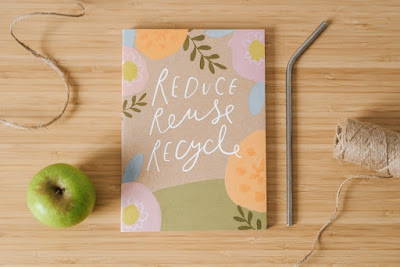 |
| Photo reference: From pexels copyright free images |
Millions of people have been afflicted by the Covid-19 epidemic across the world. It posed a challenge in every aspect of life. Lower levels of air pollution, cleaner sky, and better air quality were witnessed worldwide as a result of this mayhem that engulfed the Earth.
According to the UN environment report, the ‘Green recovery’ can be a step towards slowing down the inevitable extreme climate changes. While the planet has still headed towards a rise of 3 degree Celsius in this century, however, a notable change in climate has been experienced worldwide. The UN report suggests that this will bring us closer to the goal of 2-degree Celsius mentioned in the Paris Agreement. The main reason being the reduction in greenhouse gas emission. If successful, the measures might result in a 25% reduction in overall emissions by 2030. (source: https://news.un.org/en/story/2020/12/1079602)
Under-stress species of animals and birds have been thriving in these times in the cities that are otherwise dense with air-pollution. The lockdowns imposed have given the planet a chance to undergo healing. However, as these restrictions are being lifted, the recent changes are being sadly reversed.
This must cause us to stop and consider a critical question: Could Covid-19 pandemic give Green Recovery a chance? And if yes; then how?
As a part of Covid-19 recovery plan, countries must make investments in climate action plans. Choices made by the government must be holistic and must include comprehensive systematic changes that work to achieve a future that is not only sustainable, but also economically feasible. Burning of fossil fuels is a major cause of hazardous air pollution. Renewable energy consumes lesser resources and operates in a more decentralized fashion. As a result, one of the world's top objectives should be to invest in renewable energy initiatives. More efforts should be made to encourage the production and use of electric cars.
Changes in consumption habits in both the private and public sectors will aid in climate replenishment. For example, replacing domestic short flights with rail travel, promoting environment friendly transport modes like cycling, car-pooling, making houses more energy efficient, and reducing food and packaging wastage.
Countries facing the second wave of Covid-19 and the ones recovering from the devastating first wave are looking towards Green Recovery as the pandemic recedes.
Recycling resources at hand ensures reduced processing, manufacturing, and distribution efforts; not to mention – disposal after a product or commodity is no longer in use. Recycling companies in UAE can contribute significantly to green recovery. Scrap companies in Dubai ensure that the discarded metal is recycled efficiently rather than ending up in landfills. Recycling scrap metal reduces mining for virgin metals and significantly reduces the emissions that are the result of processing.
Lucky Group prides itself in being one of the most efficient and environmentally-conscious recycling companies that strive to realize its goal of making our planet a better place with continued efforts.
Disclaimer: This article(s) has been prepared solely for information purpose, using publicly-accessible sources that are believed to be accurate and reliable at the time of publishing. LUCKY GROUP accepts no liability whatsoever for any loss or damage resulting from the use of information, images or opinions expressed in the report. LUCKY GROUP does not give warranty of any kind regarding the completeness, accuracy and reliability of the information included in the article(s).




